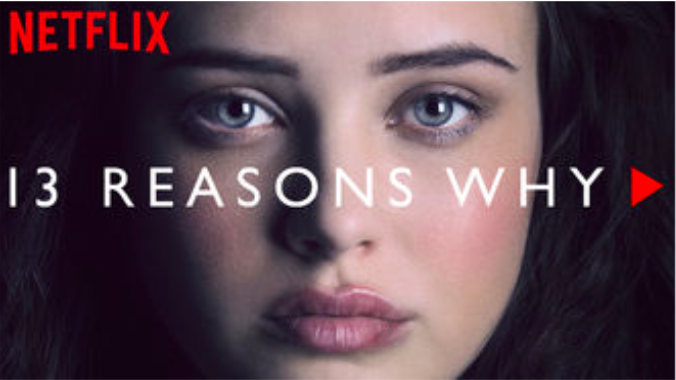13 Reasons Why… or Why Not?
June 2, 2017
Viewers gaze at their screens hesitantly, watching as a teenage girl named Hannah Baker recounts her final days on earth through cassette tapes. Baker, a newcomer to a small Californian town, endures months of public humiliation while battling inner anxieties, marked by sexual assault and a failure of others to notice her cries for help–which all lead to her untimely death. Netflix devotees, hooked by her tale, either gasp, “This show could push a child over the edge,” or, “Their depiction of suicide is necessary… it needs to be discussed.”
Netflix’s hit series 13 Reasons Why, based on Jay Asher’s novel, ignites a fire within WFS students and other viewers globally, begging the question: Should high schoolers watch a show enmeshed in death and bullying, a show that breaks free of all barriers as it openly discusses teenage suicide, harassment, and rape?
Student Emma Davis ‘18 shared her belief that the show fails to discuss suicide in a way that could save lives, instead depicting the act as the only option for struggling high school students: “While it tackles the issue of suicide head-on, it fails to address it in a beneficial manner. The show depicts suicide as the ‘only way out,’ which I fear could add fuel to the fire for some viewers. It would be different if Hannah lived, showing that there is so much more beyond current stresses and problems, but that is just not what happened. For all of its influence, I wish they could have addressed the topic better.”
This opinion, held by other concerned individuals, underlines the inaccuracies and glorification of the show’s portrayal of suicide. According to Davis, by presenting severe self-harm as the ultimate way to handle issues, the show promotes suicide, potentially causing harm to the young audience.
However, others argue that the show sheds light on a topic rarely discussed. Student Louisa Spinner ‘18 admitted, “This is a discussion that needs to be had. This show isn’t just about suicide—although it largely centers around the reasons leading up to the act—but it is about the quintessential high school life: drama, a social hierarchy, and struggle. The show also talks about rape and its very real consequences, how a victim tries to maintain a strong front but in all actuality is crumbling on the inside. A show that encapsulates all of this… Well it seems unprecedented. I think that is what they were going for, drawing attention to these topics that are usually deemed inappropriate for a high school audience.”
Spinner does not stand alone, as some students share similar sentiments in regards to the depiction of the typical high school life, often plagued with jealousy, anxiety, and hurt. Yet, the problem of teenage suicide still remains. Baker is not alone in this seemingly lonely battle– thousands of teenagers experience similar issues that cause irreparable damage to their mental health, leading them to take their own lives (according to the Jason Foundation). While viewers brim with emotion and questions, the most common being why, producers of the Netflix series have accomplished in propelling this conversation forward in an attempt to spark change– and with great attention comes great care.
Lynn Puritz-Fine, Upper School Dean for Students, underscores the importance of facilitating insightful conversations between adults and children to ensure the safety of the WFS student body: “When we learned that some of our students were watching 13 Reasons Why, our first response was to make teachers and parents aware of the series: to provide teachers with strategies to answer student questions and to provide a resource that parents could use to make decisions about how to handle the topic or process conversations in their own families. If their child had watched or was watching 13 Reasons Why, we encouraged parents to watch at least some of the episodes, preferably with their child. We felt that watching it together could provide an opportunity for parents to have conversations with their children around these difficult and emotionally painful issues.”
On behalf of the WFS faculty, Puritz-Fine acknowledges that this show, in combating difficult topics, can create confusion. However, through thoughtful discussion with loved ones students may be reminded that no one is ever alone.































